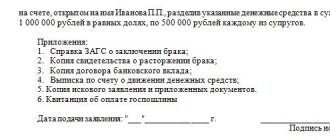Only adults can act on behalf of a child during legal proceedings, admission to a university, or real estate transactions. Russian legislation does not provide a direct formulation of who the legal representative for a minor is. In Art. 64 of the RF IC states that parents or persons appointed by guardianship authorities can represent the interests of children.
Legal representative of the child: who is he?
Most often, the legal representative of a minor is his parents – father and/or mother, included in the child’s birth certificate.
Parents represent the interests of the minor in all instances until the child turns 18 years old.
A trustee or guardian may also act as a legal representative.
The legal representative of the child is obliged to raise him, take care of his physical and mental development, and health.
He is obliged to ensure that the child receives a general education, and must also protect the rights and interests of the minor in various authorities.
Who is the legal representative of a minor in criminal proceedings?
According to Art. 48 of the Criminal Code of the Russian Federation in criminal cases committed by minors, the child’s legal representatives are involved in participation in the criminal case . These may be parents, guardians, trustees or adoptive parents.
The legal representatives of a child accused of a criminal act are allowed to participate in the criminal process based on the decision of the investigator.
The child’s representative is obliged to attend meetings, participate in the interrogation of the accused, in the trial (to get acquainted with the case materials, bring complaints, petition, challenge, provide evidence, etc.).
If the court determines that the legal representative is not acting in the best interests of the child, then the judge may decide to remove him from participation in the trial and assign another representative to the minor child defendant.
Peculiarities
However, this does not mean that the minor becomes the owner of the apartment.
The right to free residence is based on the actual provision of housing to the child. Example: Oksana and Evgeniy registered their marriage. At the same time, the wife had a daughter, Irina, from her first husband. E. registered them in the apartment, the owner of which he was. 2 years later, Irina gave birth to a son, Maxim, and also registered him in her stepfather’s house. A year later, Oksana and Evgeniy divorced. Irina and Maxim are no longer members of E.’s family, and can be discharged from their occupied living space in court without the consent of the young mother.
A citizen registered in the owner’s apartment can register his child there without the owner’s consent. After which, the law prohibits the discharge of only a minor.
If they remain registered in the apartment, eviction is possible only through a judicial procedure.
When concluding a rental agreement for residential premises in the name of the parent, the child acquires the right to live in the apartment on the basis of actual provision. It does not matter whether it is included in the contract or not.
A minor who has reached 14 years of age may live separately from his parents or adoptive parents.
For example, with a grandmother or other relatives. The opinion of mom and dad is not decisive.
The ward receives the right to live separately from the guardian upon reaching 16 years of age, with the permission of the guardianship and trusteeship authority to live separately from a legal representative.
Let's summarize:
- children's housing rights are based on similar rights of parents;
- by acquiring the opportunity to live, the baby does not become the owner of the apartment of his mother, father or adoptive parents;
- parents/adoptive parents do not have similar rights to children's homes.
Document certifying the position of the legal representative
In order to represent the interests of children, parents, adoptive parents or guardians must have documents on the basis of which they can act in various authorities on behalf of the child.
Such documents may be:
- child's birth certificate;
- parents' passports;
- guardian's certificate;
- a child's adoption certificate or a copy of the court decision on adoption;
- decision of the guardianship authority to establish guardianship or trusteeship.
In exceptional cases (the child’s parents are absent for a long time, they are very ill, the child has no close relatives), the interests of the child are represented by the guardianship authorities by court decision.
Legal representatives of the child according to the Family Code: article
In Art. 64 of the Family Code of the Russian Federation clearly states that the legal representatives of the child are his parents.
If the child is an orphan or the parents have been deprived of parental rights in court, then the child’s representative is a guardian, adoptive parent, trustee or adoptive parents.
Legal representatives must protect and represent the interests of the child in all instances, resolve inheritance, land, housing, labor and other disputes, represent the interests of the child in court, etc.
Parents or their substitutes (guardians, trustees, etc.) must act in the interests of the child.
If there are contradictions or disagreements between parents and children, then the guardianship authorities appoint a representative to protect the rights and interests of the child.
Article 69 of the RF IC. Deprivation of parental rights
Parents (one of them) may be deprived of parental rights if they: evade the duties of parents, including malicious evasion of child support; refuse, without good reason, to take their child from a maternity hospital (ward) or from another medical institution, educational institution, social welfare institution or similar organizations; abuse their parental rights; children are cruelly treated, including physical or mental violence against them, and attacks on their sexual integrity; are patients with chronic alcoholism or drug addiction; committed an intentional crime against the life or health of their children or against the life or health of their spouse.
How to become a legal representative of a child in 2020?
Parents become the child’s legal representatives at birth, that is, by default.
If a child does not have parents or they are deprived of parental rights, then guardianship (for children aged 14 to 18 years) or guardianship (up to 14 years) is established over the child.
In order to become the legal representatives of a child, that is, a guardian or trustee, it is necessary to contact the guardianship authorities at the place of registration of the minor, providing the necessary documents.
After considering the applicant’s application and approval of his candidacy for the role of guardian or trustee, he is given an appropriate decision.
In this case, the guardianship authorities are obliged to issue to the guardian all the documents due to the child: his birth certificate, information about the parents (act of deprivation of parental rights, death certificates), documents for the apartment that is assigned to the child, an inventory of property and others.
Special cases
A child may be born from persons who are not in an officially registered marital relationship. In this case, to establish paternity, they submit a corresponding application to the registry office. If the mother dies, it is impossible to establish her whereabouts, she is declared incompetent, or if her rights to the child are deprived, the document is submitted to the registry office by the remaining parent.
To establish paternity in this case, the consent of the guardianship and guardianship authority is required. In case of his absence, the decision is made by the court. At the birth of a legally incompetent person from persons who are not officially married to each other, or in the absence of a joint or sole statement from the father about his descent from a specific man, paternity is established at the request of one of the parents, or a trustee/guardian, or a citizen on whose dependent he is is located, or the person under guardianship when he reaches 18 years of age. This procedure is established by the provisions of Art. 49 SK.
Who is the representative of an orphan studying at a technical school?
According to Art. 123 of the Family Code of the Russian Federation, children left without parents, without guardians and trustees, who went to study in an organization for orphans, must be under the guardianship of the guardianship authorities.
The duties of a guardian are temporarily assigned to this body.
In the case where a child has entered a technical school, lives in a technical school dormitory, and the educational institution specializes in raising orphans, then it will be the legal representative of the child.
Guardianship and trusteeship
Guardianship is assigned to both a child under fourteen years of age and an adult who is mentally ill. A guardian is a person who is obliged to support his ward with money paid by the state.
When talking about how guardianship differs from a related phenomenon - trusteeship, it is necessary to indicate the age limit. Guardianship is established for children under fourteen years of age.
Guardianship - for children from fourteen to eighteen years old. In the first case, legal relations can exist between the guardian and the ward.
In the second version of legal relations, a trustee and a ward are involved.
The guardian is the same parent. He must replace a child or an incapacitated person with a mother or father. The responsibilities of a trustee are much smaller.
However, the rights of the latter are also reduced in comparison with the guardian.
Legal representative for a child entering a university, college, technical school
When a child enrolls in an educational organization, the minor’s representative must submit an application on his own behalf and also present an identification document.
It is also necessary to present a document confirming the relationship with the child (birth certificate for parents or conclusion for a caregiver).
The rights and responsibilities of representatives of students are prescribed in Art. 44 Federal Law No. 273 “On education in the Russian Federation”.
According to this law, representatives of a minor child have the right to choose an educational institution, taking into account the wishes of the child and the recommendations of the medical and pedagogical commission.
They are obliged to delve into the educational process, get acquainted with the child’s grades and progress, provide support in his studies, and comply with the internal regulations of the institution in which the child is studying.
For improper performance of their duties, legal representatives of minor students are responsible in accordance with the legislation of the Russian Federation.
Algorithm of actions for obtaining temporary guardianship
Parents play a major role in preparing temporary custody. They process the design according to the following algorithm:
- Preparation of documents.
- Collecting information about the child.
- Drawing up an application.
- Submission of documents to the guardianship department.
- Receiving an order.
Documentation
Parents, together with the grandmother, a candidate for guardianship, collect a package of documents and submit them to the guardianship department.
List of documents:
- a statement from the parents, indicating compelling reasons for guardianship, supported by documents;
- passports of all parties, SNILS;
- Marriage certificate;
- medical report on the health of the guardian and the absence of serious illnesses;
- extract from the Unified State Register of Real Estate on the availability of living space;
- an autobiography showing the level of social development, education, interests - the positive things that he can pass on to the child.
Grandparents are exempt from the need to undergo special training for guardians.
For a child:
- birth certificate;
- extract from the passport office;
- health certificate;
- information from the place of study (for a student);
- written consent to the guardianship of a minor if he is over 10 years old.
If the child is over 10 years old, he must be present when submitting documents.
Registration deadlines
To obtain an opinion on the possibility of guardianship, you need the guardianship department at the place of residence of the grandmother, and to register guardianship, you need the department at the child’s place of residence.
The law defines the deadlines: studying data - 10 days, registration of guardianship - 5 days.
From the date of filing the application, within 3 days the guardianship authority requests from other departments the following data:
- about the amount of pension;
- about the absence/presence of a criminal record;
- on the composition of residents registered with a guardian.
Within 5 days, guardianship staff inspect the grandmother’s home, find out the living conditions: the availability of a sleeping place, children’s things and, if the child is a schoolchild, then a place for classes. After the check, a conclusion on a positive decision on guardianship is issued.
With this conclusion, the grandmother applies to the guardianship department where her grandson lives. After 3-5 days of consideration, guardianship is assigned.
When do the rights and obligations of a legal representative cease?
The child is independently responsible for his actions, speaks on his own behalf in various authorities without the support of a legal representative in the following cases:
- If he has already reached the age of majority, he is 18 years old.
- If a minor has entered into a marriage (got married).
The law of the Russian Federation provides for a limited list of persons who can act as legal representatives of a minor child: parents, guardians, trustees, adoptive parents. They are entrusted with the rights and responsibilities for the upbringing and education of children.
Also, legal representatives bear responsibility (administrative, civil, criminal) before the law for the actions of minor children.
Similar articles:
- Power of attorney for a child to travel abroad unaccompanied by parents
- What documents are needed to take a child and grandmother abroad?
- Declaration of the Rights of the Child
- What documents are needed to travel abroad with a child?
- Is it possible to take a child abroad without the father’s permission?
- Previous entry Participation of minors in apartment privatization
- Next entry Temporary registration of minors
Comments on the article “Who is the legal representative of a minor?”
Nobody has written anything yet. Be the first!
Citizen's capacity
The ability of a citizen, through his actions, to acquire and exercise civil rights, to create civil responsibilities for himself and to fulfill them (civil capacity) arises in full with the onset of adulthood, that is, upon reaching the age of eighteen.
In cases where the law allows marriage before the age of eighteen, a citizen under eighteen years of age acquires full legal capacity from the time of marriage. The legal capacity acquired as a result of marriage is retained in full even in the event of divorce before reaching the age of eighteen. If a marriage is declared invalid, the court may decide that the minor spouse loses full legal capacity from the moment determined by the court.
No one can be limited in legal capacity and legal capacity otherwise than in cases and in accordance with the procedure established by law.
Failure to comply with the conditions and procedure established by law for limiting the legal capacity of citizens or their right to engage in entrepreneurial or other activities entails the invalidity of the act of a state or other body establishing the corresponding restriction.
A citizen’s complete or partial renunciation of legal capacity or legal capacity and other transactions aimed at limiting legal capacity or legal capacity are void, except in cases where such transactions are permitted by law.








